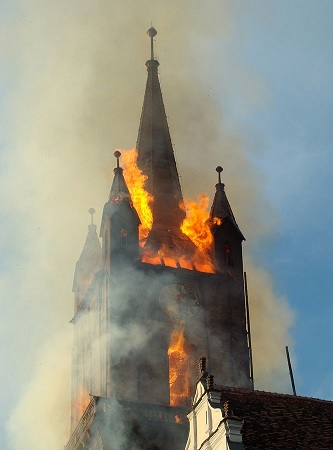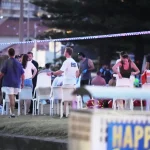
(function(d, s, id) { var js, fjs = d.getElementsByTagName(s)[0]; if (d.getElementById(id)) return; js = d.createElement(s); js.id = id; js.src = “https://connect.facebook.net/en_US/sdk.js#xfbml=1&version=v3.0”; fjs.parentNode.insertBefore(js, fjs); }(document, ‘script’, ‘facebook-jssdk’)); –>
–>
February 7, 2024
The gulf between understanding Islam in theory and in practice is wide and telling. Based on the findings of a recent study, what western peoples think of Islam when relying on secondhand information from the powers-that-be (the media, the political “elite,” etc.) is vastly different from what they think of Islam after personally experiencing it. According to the report:
‘); googletag.cmd.push(function () { googletag.display(‘div-gpt-ad-1609268089992-0’); }); document.write(”); googletag.cmd.push(function() { googletag.pubads().addEventListener(‘slotRenderEnded’, function(event) { if (event.slot.getSlotElementId() == “div-hre-Americanthinker—New-3028”) { googletag.display(“div-hre-Americanthinker—New-3028”); } }); }); }
In 2009, Public Issue investigated, for the first time in Greece, the attitudes of Greeks towards Islam, the social perceptions of the concepts and symbols associated with the Islamic religion, the degree of knowledge and familiarity of citizens with the Islamic tradition, as well as the existing social beliefs regarding Islam-West and Islam-Greece relations.
The study found a dramatic shift of opinion among Greeks between 2009, when Muslims in Greece were few and far between — meaning Greek opinion on Islam was theoretical and largely shaped by the media, etc. — and 2023, seven years after large Muslim migrant populations first began landing in or passing through Greece in 2016.
Now, after experiencing Islam firsthand, “Greek public opinion… treats the Muslim world clearly more negatively or even hostilely,” the report found.
‘); googletag.cmd.push(function () { googletag.display(‘div-gpt-ad-1609270365559-0’); }); document.write(”); googletag.cmd.push(function() { googletag.pubads().addEventListener(‘slotRenderEnded’, function(event) { if (event.slot.getSlotElementId() == “div-hre-Americanthinker—New-3035”) { googletag.display(“div-hre-Americanthinker—New-3035”); } }); }); }
For example, in 2009, more than 5 out of 10 Greeks held a neutral attitude towards traditional concepts and symbols of the Islamic world, stating that they have “neither a positive nor a negative impression” of words associated with Islam, beginning with the word “Islam” itself. If only 23 percent of Greeks surveyed associated that word with negative feelings in 2009, by 2023 that number had more than doubled: now 59 percent of Greeks negatively associate the word “Islam.” Similar words, including “Arabs,” “Muslims,” “Koran,” “Prophet Muhammad,” and “mosque” also hold more negative connotations for Greeks than in 2009.
Little wonder. Since 2016, Greeks have had a major taste of Islam, leading to a “Crime explosion in Greece — 55% of prisoners are migrants,” to quote from another recent report.
Apart from the massive spike in general criminality, the hate — directed from Islam against Christianity — is especially palpable. As discussed in this 2022 article, there were 2,339 incidents of church desecrations in Greece between 2015 and 2020, when the tiny nation, seen as Europe’s eastern gateway, was flooded with migrants from the Islamic world. One report found “a correlation between the increase in illegal migration and the incidents of attacks on Greek Orthodox religious churches and religious spaces during the five-year period which occurred during the peak of the migration crisis.”
Specific examples are many. In 2016, the Church of All Saints in Kallithea near Athens was set ablaze by “Arabic speakers.” In April 2021, Muslim migrants entered into and utterly desecrated a small church. Proud of their handiwork, they also videotaped portions of the vandalism and uploaded it on TikTok. Before being removed, the video showed a topless migrant dancing to rap music as he walks towards and inside the church. The next clip shows the aftermath: devastation inside the church, with smashed icons and the altar overthrown.
In 2020, Muslim migrants ransacked and transformed another church into their personal toilet. “The smell inside is unbearable,” said a local of what was once the St. Catherine Church in Moria, a small town on the island of Lesvos, which was overwhelmed with migrants who arrived via Turkey. “[T]he metropolitan of Mytilene is aware of the situation in the area, nevertheless, he does not wish to deal with it for his own reasons.”
 That 2020 report adds that
That 2020 report adds that
‘); googletag.cmd.push(function () { googletag.display(‘div-gpt-ad-1609268078422-0’); }); document.write(”); googletag.cmd.push(function() { googletag.pubads().addEventListener(‘slotRenderEnded’, function(event) { if (event.slot.getSlotElementId() == “div-hre-Americanthinker—New-3027”) { googletag.display(“div-hre-Americanthinker—New-3027”); } }); }); } if (publir_show_ads) { document.write(“
This is only the latest incident… [I]t has become extremely common for Greek Orthodox Churches to be vandalised and attacked by illegal immigrants on Lesvos. As a deeply religious society, these attacks on churches are shocking to the Greek people and calls to question whether these illegal immigrants seeking a new life in Europe are willing to integrate and conform to the norms and values of their new countries.
In fact, the Greeks of Lesvos are paradigmatic of the change taking place in Greece:
These continued attacks have ultimately seen the people of Lesvos, who were nominated for the Nobel Peace Prize in 2016, become increasingly frustrated by the unresolved situation that has restricted and changed their lives as they no longer feel safe on their once near crime-free island.
It is further consistent and telling that Greeks polled in 2023 held a stronger dislike for migrants from those Muslim nations renowned for their “radical” tendencies — with Pakistan and Afghanistan at the top of the list. No doubt migrants from those nations, where Christians and other “infidels” are treated as subhuman and worse, have left an especially lasting impression.
At the same time, it is interesting to note that these changes are not as dramatic as one might expect. For starters, it should be understood that Greece is not just any Western nation: due to its proximity to the Muslim world, it has centuries of horrific experiences with Islam, especially in the guise of the Ottoman Empire. As such, the average Greek has always had a more negative view of Islam compared to the average Western European or American. Even in 2009, 67 percent of Greeks believed there was a “clash of cultures” between Christianity and Islam.
In short, although public opinion towards Islam is negatively shifting, these changes are not as pronounced as might be expected — underscoring the power of generations’ worth of indoctrination. In other words, abstract theory — enshrined by the notion that Islam is the otherwise forever “misunderstood” religion of “peace,” etc. — is still having an influence. The recent poll found, for example, that “the percentage of citizens who accept that there is an ‘Islamic danger’ has increased from 27% in 2009 to [only] 39% today (+12%).”
If this is Greece, what more will Western Europe need to experience to begin having the same, modest misgivings about Islam?
Raymond Ibrahim, author of Defenders of the West and Sword and Scimitar is the Distinguished Senior Shillman Fellow at the Gatestone Institute and the Judith Rosen Friedman Fellow at the Middle East Forum.
Image: Samat
<!–
–>
<!– if(page_width_onload <= 479) { document.write("
“); googletag.cmd.push(function() { googletag.display(‘div-gpt-ad-1345489840937-4’); }); } –> If you experience technical problems, please write to [email protected]
FOLLOW US ON
<!–
–>
<!– _qoptions={ qacct:”p-9bKF-NgTuSFM6″ }; ![]() –> <!—-> <!– var addthis_share = { email_template: “new_template” } –>
–> <!—-> <!– var addthis_share = { email_template: “new_template” } –>





